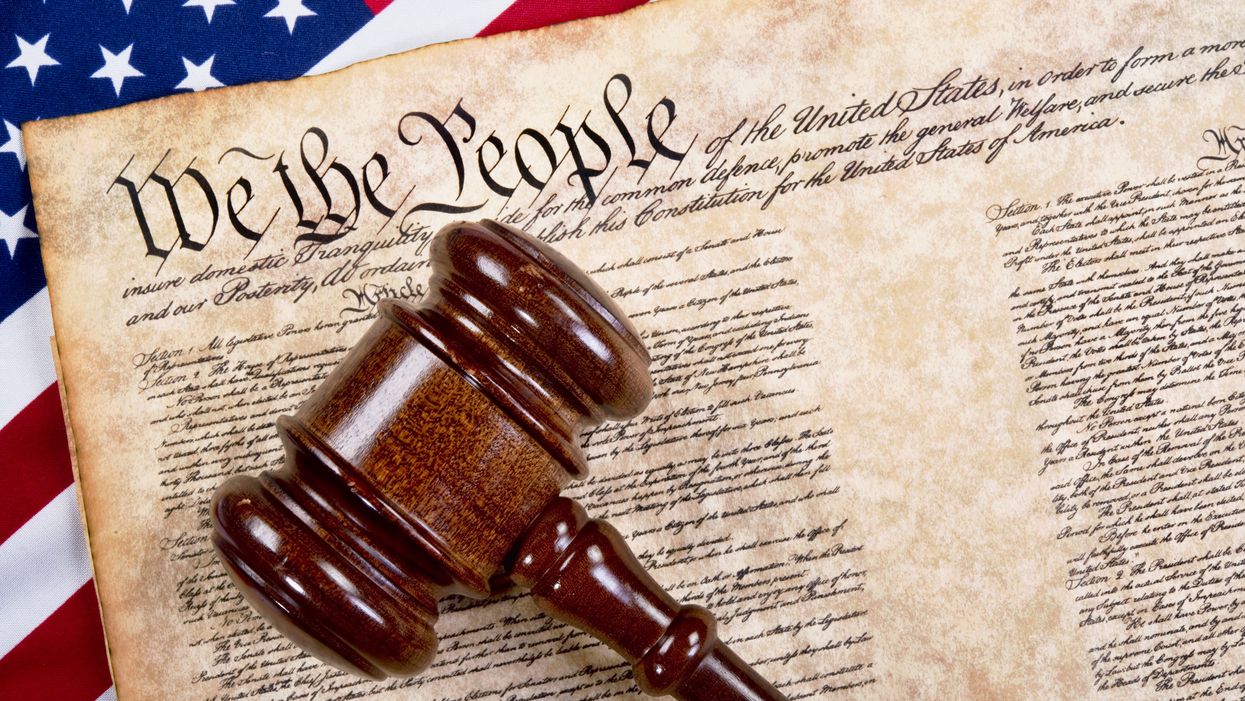
Image source: Getty Images Creative

This man KNOWS the Constitution inside and out
President Donald Trump announced Friday he would declare a national emergency in order to build a wall on the southern U.S. border, which would, in theory, alleviate mass illegal immigration.
The decision, of course, is controversial, both because Democrats — along with millions of Americans — oppose building a border wall, and because Trump's decision may provide grounds for future Democratic presidents to declare national emergencies over issues they believe are critical, such as climate change.
But what about the constitutionality of Trump's decision? What would the Framers think of Trump's unilateral action that — for all intents and purposes — was taken to bypass Congress, the branch of government the Founding Fathers delegated legislative power.
Rep. Justin Amash (R-Mich.) — a staunch constitutional conservative — answered those questions on Friday in a must-read Twitter thread:
A thread on national emergencies and our Constitution:
Congress makes laws.
The president executes laws.
The Supreme Court decides cases.
This is our constitutional system.
Congress cannot delegate legislative powers to the president by statute.
— Justin Amash (@justinamash) February 15, 2019
Going back to the Framers of the Constitution, Americans have recognized the president's inherent power as chief executive to act swiftly in an emergency, especially a sudden attack on the United States. But such power exists only so long as Congress has no opportunity to act.
— Justin Amash (@justinamash) February 15, 2019
Over the years, Congress has passed laws to create an orderly process for receding the president's inherent emergency power as an emergency subsides—the War Powers Resolution and the National Emergencies Act are two examples.
— Justin Amash (@justinamash) February 15, 2019
Laws like the War Powers Resolution and the National Emergencies Act are not—and, under our Constitution, cannot be—grants of legislative powers to the president. They were adopted to transition authority back to Congress when unilateral executive action is no longer appropriate.
— Justin Amash (@justinamash) February 15, 2019
Congress can make no law permitting the president to assume permanent legislative powers, even in a single area, simply by his declaring an emergency. The president may act quasi-legislatively only in an actual emergency—when Congress has no time to act—and then only temporarily.
— Justin Amash (@justinamash) February 15, 2019
Congress cannot turn the executive branch into the legislative branch. Such an effort fails for lack of conformity to our Constitution. The validity of an emergency declaration is limited by the definition of “emergency" itself and cannot be expanded by statutory openness.
— Justin Amash (@justinamash) February 15, 2019
Can Congress make a law permitting the president to conduct the entire appropriations process by his declaring an emergency? Of course not. That would impermissibly grant him legislative powers. The same principle applies when addressing a portion of the appropriations process.
— Justin Amash (@justinamash) February 15, 2019
Some have replied that Congress still retains legislative powers should the president abuse an emergency declaration. They note that Congress can pass legislation to override the president's actions. Though true, this arrangement turns the Constitution on its head.
— Justin Amash (@justinamash) February 15, 2019
It would mean that a simple majority of each chamber could delegate legislative powers to the president, but only a two-thirds majority or greater could reject their application to a particular case or repeal the delegation altogether.
— Justin Amash (@justinamash) February 15, 2019
Congress should (and I will) work to repeal laws that ostensibly grant legislative powers to the president. But even if Congress does no such thing, such laws are void under our Constitution, and any emergency declaration by the president for a non-emergency is likewise void.
— Justin Amash (@justinamash) February 15, 2019